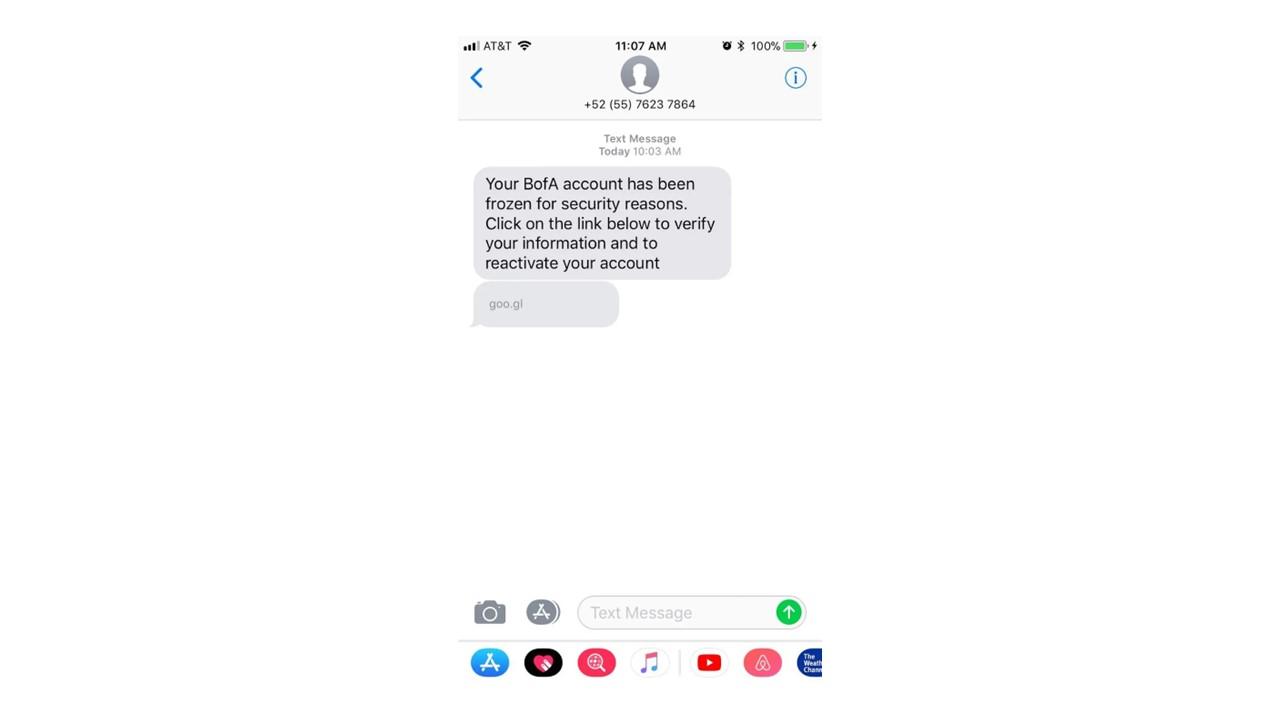Bank of America Text Message Scams Are on the Rise – How to Spot Them
If you received a text message from Bank of America alerting you of a recent transfer or that your account has been locked, it could be a scam.
March 7 2023, Updated 3:15 p.m. ET

If you received a text message from Bank of America alerting you of a recent transfer or one that requests sensitive information, beware, it could be a scam.
Bank of America text scams have been making headlines since October 2021 and earlier, and they continue to be a problem for customers of the multinational investment bank.
Here’s what you need to know regarding Bank of America text alert scams, including how to spot them, and what you can be doing to protect yourself from cybercriminals.
How to tell when a Bank of America text alert is a scam.

A woman logging into her Bank of America account.
Mobile banking isn’t a new concept but one that continues to increase in popularity. In fact, banks have had to shut down several branches across the U.S. because the demand for physical locations has lowered.
In 2021, it was estimated that 64.6 percent of the U.S. population turned to digital banking. That figure was expected to increase to 65.3 in 2022, according to Statista.
As convenient as online banking may be, it has only given criminals yet another avenue to take to try and steal your information and money. If you receive a message from Bank of America that contains any of the following, this should raise a red flag rather than prompt you to respond to the text:
1. The text message asks you to confirm a Zelle transfer.
Whether you made a Zelle transfer or not, Bank of America isn’t going to send you an alarming message asking you to confirm the transaction. The bank chain also won’t call you and ask that you make a subsequent transaction to cancel out the last one you were questioned about.
Unfortunately, this is what happened to a woman in California back October 2021, who watched $3,500 quickly disappear from her account after she fell victim to a Bank of America text scam.
2. The text message asks you to confirm sensitive information.
If you receive a text message from Bank of America that asks you to confirm your bank account number, Social Security number, or provide your login credentials, it’s a scam.
3. You receive an alert that says your account has been temporarily suspended.
While Bank of America will send you short SMS messages that may alert you about recent transactions or money you received, the company won’t ask you to click a link to reactivate a suspended account.
4. The text message raises a sense of urgency.
In order for scammers to gain access to your money, they need you to act — provide them with your account number or verify personal information. To get you to do this, cybercriminals create text messages that create a sense of urgency so you’re prompted to act before you even have time to process the information.
Please, don’t fall for the trick. Instead, consider implementing the tips highlighted below.
What should you do if you receive a scam text from Bank of America?
In the event you receive a text message from Bank of America and you think it might be a scam, these steps can help keep your account and personal information protected:
- Don't respond to the message. Whether you’re asked to respond with a yes or no, or to click a link, don’t do it. Instead, call the bank using the contact information found directly on the company’s website. A banking representative will be able to determine if an issue exists within your account such as a fraudulent transaction or if your account has been suspended.
- Never click a link included in a text message. Although the link might seem like the quickest way to resolve whatever the problem is, it’s only going to lead to more serious issues.
- Contact the bank. As mentioned, if you receive any type of text alert from Bank of America that has you feeling confused or alarmed, call Bank of America at 800-432-1000. You can also email the BoA at abuse@bankofamerica.com or forward the suspicious text to 7726 (SPAM).
With banking scams on the rise, banks are limiting the amount of interaction that occurs via text message. With that said, if you receive a text alert from Bank of America and want to be sure it's legitimate, login into your account online or via the bank’s app or call the bank directly.

